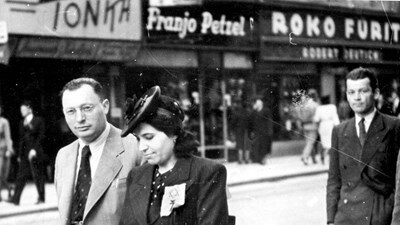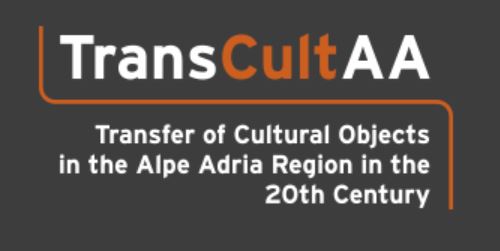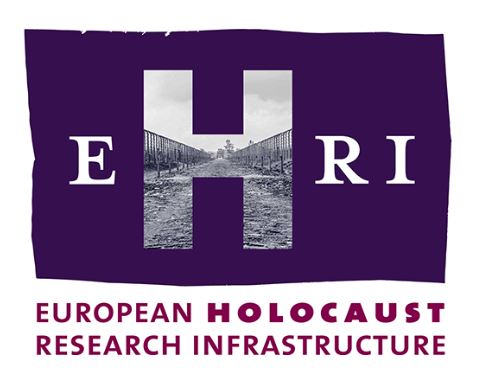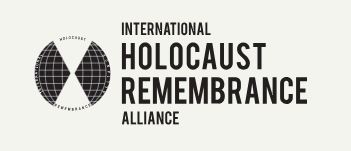JDCRP Foundation | Jewish Communal Property | Project Lost-Found Database | |Belarus | Belgium | Bulgaria | Croatia | Germany |Hungary | Luxembourg | Netherlands | Poland | Russian Federation | Slovenia | Switzerland | United States | EHRI | IHRA
The Claims Conference-WJRO work with governments and relevant Jewish communities to ensure a just, fair, and simple process for claims for looted art and other cultural property in each country and encourage the development of provenance research. Examples of current activities include:
Jewish Digital Cultural Recovery Project Stiftung (JDCRP Foundation)
Co-founded by the Claims Conference, the JDCRP aims to create a cross-searchable digital platform for archival documentation, research, and education on the looting of Jewish-owned cultural property by the Nazis, their allies, and collaborators.

Jewish Communal Property
The Claims Conference-WJRO has been moving towards a policy that encourages the return of Jewish communal manuscripts and other objects that are in private hands to the communities from which they were taken, but with the recognition that the scanning of such community registers and making the information in them generally available is of great importance to Jewish historical and genealogical research and that there is a need to educate auction houses and dealers handling Judaica in this regard.
For more information, see secion on the United States.
Project “Lost-Found” Database
The number of Jewish museums that have done provenance research on their collections has remained small. In order to jumpstart adherence by the member institutions of the Association of European Jewish Museums-AEJM to its 2006 Resolution, discussions between representatives of the AEJM and the Claims Conference-WJRO have centered on creation of a “International Database of Lost and Found Ceremonial Objects”. The initial phase of the project was carried out from February to June 2021 with support from the Claims Conference-WJRO, and the next phase focuses on six Jewish museums that were looted by the Nazis or their allies – the Jewish museums of Amsterdam, Athens, Budapest, Prague, Paris, and Vienna – including what objects were restituted and what objects are known to be elsewhere or missing. The presentation will be done through the Jewish Digital Cultural Recovery Project.
Belarus
Continuing research on libraries looted in Belgium is showing that, similar to French libraries, many of the books seized in Belgium are in Minsk. It is hoped that cooperation with relevant institutions in Belarus will continue.
Belgium

The Claims Conference-WJRO sponsors research on Nazi seizures of libraries in Belgium. The first part of the research has now been completed, including lists of original individual and institutional owners. The exceptionally complicated detective work has been posted at https://www.errproject.org/looted_libraries_be.php, The second part, which focuses on the weak postwar restitution of books in Belgium, is expected to be completed later in 2024.
Bulgaria
At the request of the Claims Conference-WJRO research has been conducted on cultural property taken by Bulgaria from Jews in Macedonia, Thrace, Pirot and Bulgaria proper. Contact has been initiated with the government of Bulgaria and with the Bulgarian Jewish Community in regard to next steps.
Croatia
Meetings are being held with the Croatian government regarding improvement in provenance research and in establishing a claims process.
At the request of the Claims Conference-WJRO, a report that presents a historical analysis and partial list of cultural objects looted from Jews and others by the Croatian fascists – the Ustaše – during the Holocaust and after World War II, that were nationalized by the Communist government and distributed to Croatian state institutions has been published.
Germany
The Claims Conference has been participating in discussions with Germany’s Ministry of Culture (Beauftragte der Bundesregierung für Kultur und Medien) and others concerning improving the Restitution Commission and provenance research, as well as the claims process in general.
In October 2023, at the occassion of the conference “Just, fair – up to date? – 25 Years of the Washington Principles,” organized by the German Lost Art Foundation, Wesley Fisher, Director of Research, held one of the opening speeches. A recording of the conference can be accessed here.

Hungary
The WJRO sponsored the launch of a new website by the Zekelman Holocaust Center in Detroit, Michigan, featuring 180 digitized, searchable microfilm reels with more than 160,000 frames related to Jews in Hungary during World War II. A key highlight of this collection is the documentation of Jewish cultural property—including art collections, personal possessions, and valuable assets—seized by the Hungarian government, Nazis, their allies, and collaborators. Donated by the late Prof. Randolph Braham, a renowned scholar of the Holocaust in Hungary, the reels were sourced from the National Archive of Hungary and local repositories in the 1960s. The three reels concerning looted cultural property were translated into English in their entirety by Clara Garbon-Radnoti. This is the first time such Hungarian archival records on looted cultural property have been made available over the internet to the general public. A webinar on the subject was organized by the WJRO in February 2025.
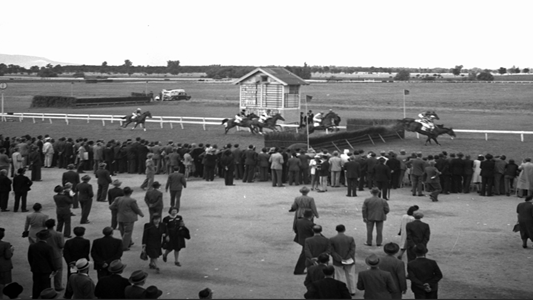
In addition, the Claims Conference-WJRO sponsored research on the looting of racehorses from Jews in Hungary (considered as cultural property). A second research report on the looting of libraries in Hungary is proceeding.
Luxembourg
The Claims Conference-WJRO is participating in ensuring that the joint agreement between the government of the Grand-Duchy of Luxembourg and the Consistoire Israélite de Luxembourg (cosigned by the WJRO and the Fondation luxembourgeoise pour la Mémoire de la Shoah), that pertains to cultural property, is being carried out.
Netherlands
In articles (e.g., in the Dutch newspaper NRC Handelsblad), in speeches at conferences, and otherwise, the Claims Conference-WJRO had criticized changes that had been made in Dutch restitution policy during the past decade.
Partly in response to this criticism, the Minister of Education, Culture, and Science called for a reassessment during 2020 of Netherlands policy. Meetings were held with the Committee for the Evaluation of the Restitution Policy for Cultural Heritage Objects from the Second World War (Kohnstamm Committee), which on December 7, 2020, published its report. The report basically includes and agrees with all the recommendations that the Claims Conference-WJRO made to the Committee, including establishment of a Help Desk to assist claimants and how to handle unclaimed “heirless” artworks. The Minister of Education, Culture, and Science has since recommended concrete steps to be taken in regard to restitution policies that are not only in accordance with the report but even go beyond it. In the late spring the Minister established a series of progressive policies and increased funding in provenance research. The envisioned provenance research needs to address the recovery of cultural goods from other countries, for example those paintings looted from Dutch Jews that went through the Nazi art market to Poland.
As of January 1, 2022, the National Office for Cultural Heritage of the Ministry of Education, Culture and Science opened an office for looted art questions for both the public and specialists in the field that reconstitutes the Origins Unknown Agency, advises claimants as well as museums on acquisitions and oversees new research on the NK Collection and programs to educate new provenance researchers. It is expected to play a more active role in the JDCRP Foundation and to address issues of artworks looted in the Netherlands that are now in other countries.
Poland
The Gdansk State Museum organized a conference in June 2020 to examine the origins of art collections in Polish museums, at which Patricia Grimsted presented her research on a van Goyen painting seized by the Nazis from the Dutch art dealer Jacques Goudstikker, the only presentation concerning art currently in Poland that was looted from Jews in countries outside of Poland. The original version of Dr. Grimsted’s article may be seen here.
Russian Federation
The Claims Conference-WJRO provides the following concerning information on listings by the Ministry of Culture of the Russian Federation as a service to provenance researchers.
The Ministry of Culture of the Russian Federation on its website entitled “Cultural Values-Victims of War” in a section on “Moved Cultural Values” has published a partial list of paintings, drawings, graphics, archaeological objects, musical instruments and other categories of objects that were brought into Russia by the Soviet Trophy Brigades at the end of World War II.
So far, objects listed have overwhelmingly been objects taken from museums and repositories in Germany and other states that were enemies of the Soviet Union during the war, which under Russian legislation are not subject to restitution. So far as is known, specialists in Germany trying to track what was taken from the various German museums after the war that still is in Moscow and elsewhere in the former Soviet Union are almost the only ones outside of Russia following the listings. Since much of what the Soviet Trophy Brigades took included many objects looted by the Nazis and their allies from Jews and others of their victims, it is not impossible, however, that some such objects may be in the listings, although in all likelihood only by accident. Although parts of the website are in German, English, and French, the catalog of the objects is exclusively in Russian. To make the listing better known to non-Russian speakers, the Claims Conference-WJRO presents on its website a translation into English by Yagna Yass-Alston of all the listings of paintings (paintings 2016, paintings 2018) as well as those graphics (works on paper 2016) that are by known artists.
Slovenia
At the request of the Claims Conference-WJRO, research that had begun under the TranscultAA Project (Transfer of Cultural Objects in the Alpe Adria Region in the 20th Century), has been continued, specifically on what was taken from the Jewish community of Maribor.
Switzerland
At the beginning of October 2020, the Claims Conference-WJRO raised with the Federal Department of Foreign Affairs and the Contact Bureau on Looted Art of the Federal Office of Culture of Switzerland – and through them with the State Secretariat for International Finance – concern that under the Swiss Escheat Law enacted in 2015, as of the end of 2020 banks are able to give over works of art and other valuables that are in their safety deposit vaults to the heirs of account-holders and to sell or otherwise dispose of items that are unclaimed, with the proceeds going to the Federal government. The Swiss Banks Settlement did not go into the question of looted artworks, and it is likely that works that had been looted from Jews and were deposited by Nazis or by persons collaborating with them, as well as by Jews who then perished, are in the relevant safety deposit boxes.
As a result of the Claims Conference-WJRO inquiry in 2020, the Swiss Federal Office and the Legal Service of the General Secretariat of the Federal Department of Finance have been exchanging information on a regular basis within the framework of a working group on the subject of dormant assets (in the form of works of art) in Swiss banks. The aim of this exchange is to coordinate the Confederation’s work in this area. In the future, the Swiss Bankers Association will also be involved.
United States
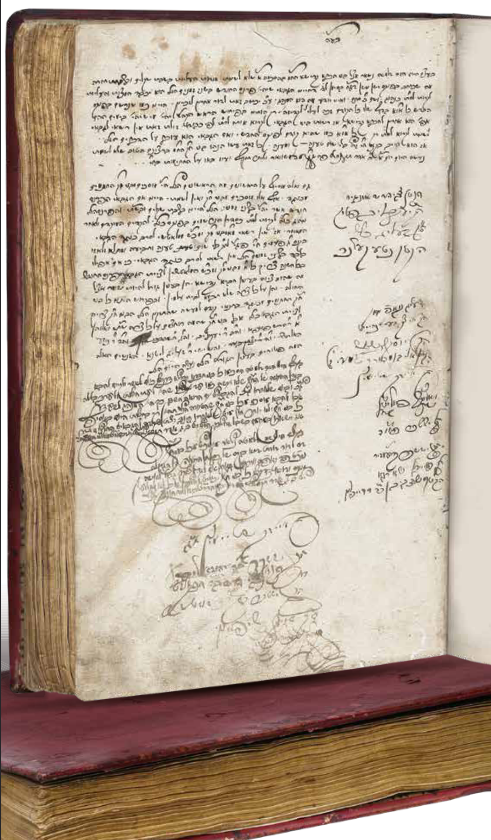
The WJRO is in discussion with the U.S. Department of Homeland Security on ways in which the restitution of pinkasim (Jewish communal registers originally belonging to Jewish communities in Europe) that have subsequently been identified as in private hands in the United States should be handled including the possibility of ensuring scanning so as to make the information in them available worldwide.
The WJRO continued discussions with the American Alliance of Museums (AAM) and the Association of Art Museum Directors (AAMD) regarding provenance research and the restitution policies of U.S. museums.
The Holocaust Expropriated Art Recovery (HEAR) Act sunsets in 2027, and the WJRO is acting both to extend and improve the HEAR Act, as well as other U.S. and/or individual state legislation.
European Holocaust Research Infrastructure (EHRI)
The Claims Conference-WJRO continues to be represented on the Scientific Advisory Board of the European Holocaust Research Infrastructure (EHRI) as EHRI becomes a permanent entity under the European Union. EHRI has promised to focus more on archives concerning assets generally and particularly regarding cultural property.
International Holocaust Remembrance Alliance (IHRA)
The Claims Conference-WJRO is represented in the Monitoring Access to Holocaust-Related Archives project of the International Holocaust Remembrance Alliance (IHRA) that is currently in discussion with the heads of both state and private archives throughout the European Union, including regarding property archives.
last updated May 2025
Images: Vue d'une des pièces de l'hôtel particulier d'Adolphe Schloss (collectionneur) au 38, avenue Henri-Martin (Paris).” Musée d’Art et d’Histoire du Judaïsme. Accessed 8 June 2021. https://www.mahj.org/fr/decouvrir-collections-betsalel/vue-d-une-des-pieces-de-l-hotel-particulier-d-adolphe-schloss-8 Documenting Nazi Library Plunder in Occupied Belgium and Limited Postwar Retrieval. Accessed 2 February 2023. https://www.errproject.org/looted_libraries_be.php Jews wearing Jewish badges with the Star of David and the letter Z, Zagreb, Croatia. Yad Vashem, archival signature: 6315/7.

